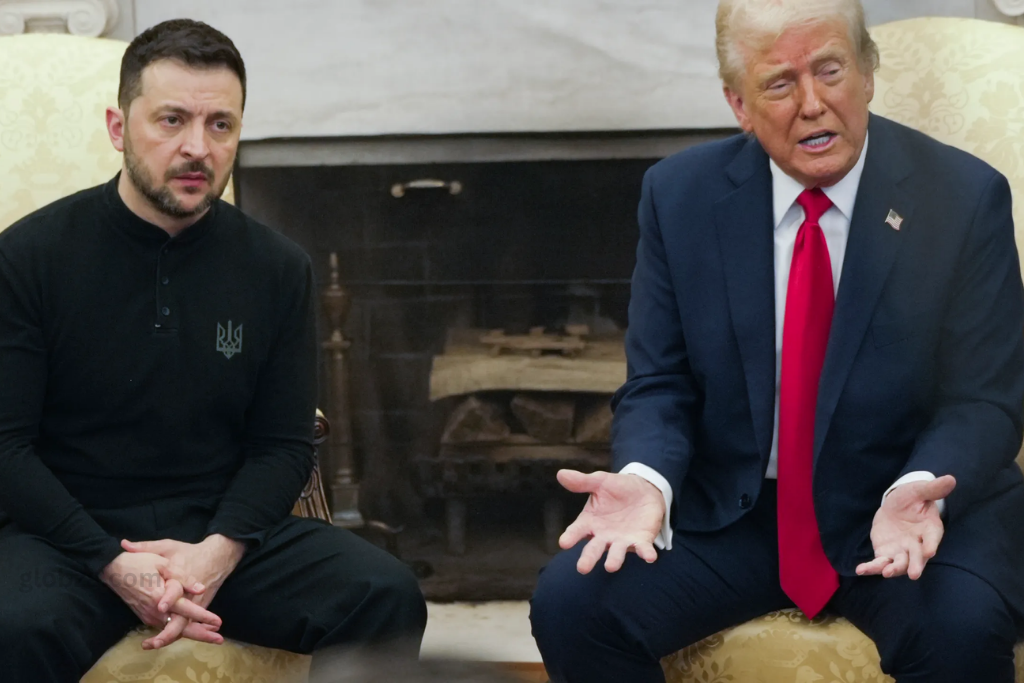A Appalling Assault Sparkles Political Firestorm
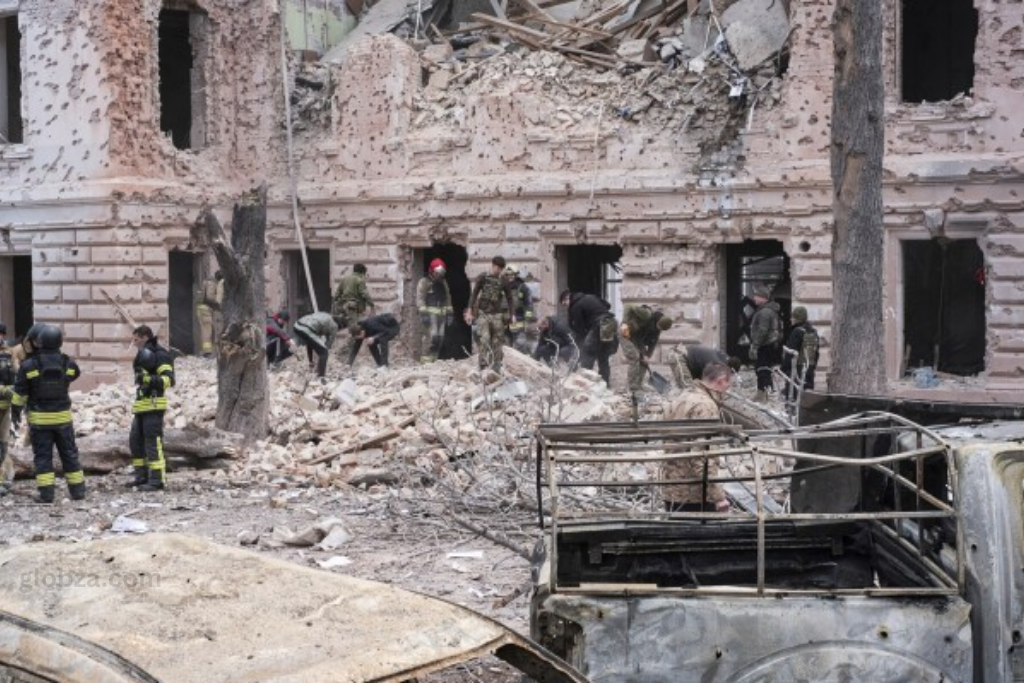
Russia’s later rocket assault on the Ukrainian city of Sumy has cleared out a obliterating toll, murdering at slightest 35 civilians and harming more than 100, counting ladies and children. The strike, which took put on Palm Sunday, has been broadly condemned as one of the deadliest attacks in 2025, encourage powers the compassionate emergency in the locale. The timing of the assault, happening on a day of devout importance, has included to the despondency and shock felt both inside Ukraine and globally. Ukrainian President Volodymyr Zelensky called the ambush a “dark chapter” in the country’s war history, emphasizing the scale of the catastrophe and the heartless nature of Russia’s progressing campaign. His words reflect the colossal enthusiastic and mental affect of the assault on both the Ukrainian individuals and the worldwide community. Pioneers around the world have condemned the viciousness, with numerous calling for expanded sanctions on Russia and more grounded back for Ukraine’s defense against proceeded aggression.
Within 24 hours of the obliterating rocket assault on Sumy, U.S. President Donald Trump moved worldwide center with disputable comments proposing that Ukrainian President Volodymyr Zelensky offers duty for the progressing war. Talking at the White House, Trump expressed, “You don’t begin a war against somebody 20 times your estimate and at that point trust individuals grant you rockets.” His comments, which showed up to divert fault from Russia, promptly started shock and disarray both locally and globally. Faultfinders were fast to upbraid Trump’s comments, denouncing him of downplaying Russia’s part in the attack and unjustifiably criticizing Ukraine’s endeavors to guard itself against overpowering animosity. The articulation was seen as an endeavor to move the story and legitimize Russia’s activities, possibly undermining worldwide bolster for Ukraine. Zelensky’s office, along with worldwide pioneers, condemned Trump’s comments, with numerous emphasizing that Ukraine has the right to protect its sway against an illegal intrusion by a much bigger and more effective assailant. The backfire assist extended the separate between Trump and the universal community, highlighting the developing pressure over the U.S.’s position in the conflict.
“Millions of individuals dead since of three individuals: Putin, Biden, and Zelensky.” — Donald Trump
Key Highlights:



Trump’s Startling Arrangement and Peace Pitch
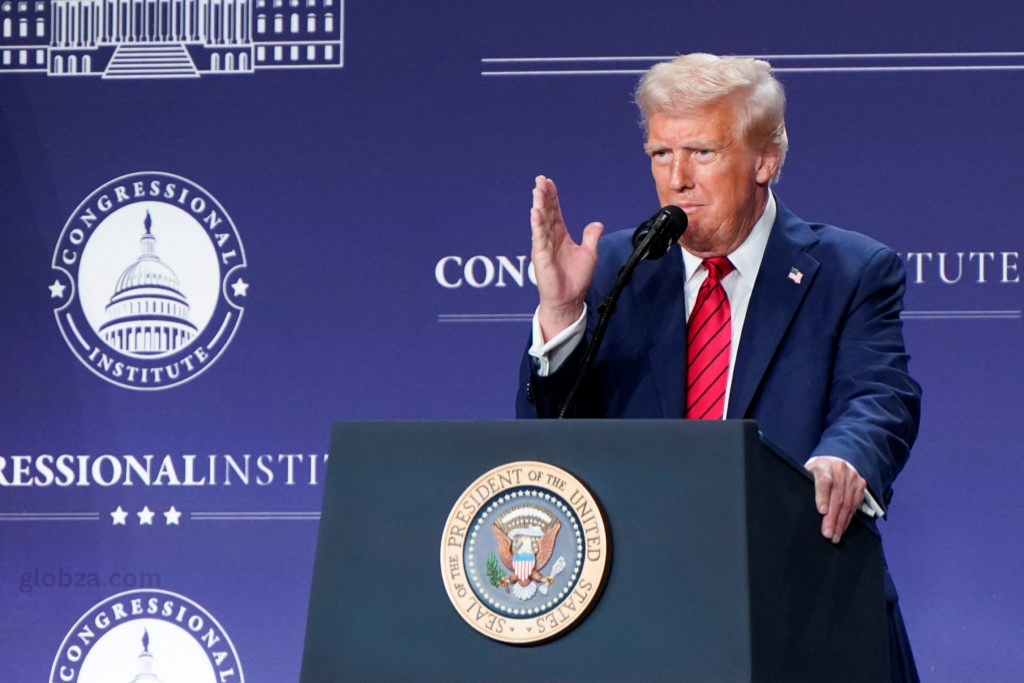
While President Trump did name the Sumy rocket strike as “terrible,” his reaction rapidly veered into discussion. He claimed that he had gotten word the assault was a “mistake” by Russian forces—an attestation that has not been confirmed by any official insights or universal sources. Or maybe than coordinating his feedback unequivocally at the Kremlin, Trump surrounded the struggle through a three-person fault story, indicating fingers at Russian President Vladimir Putin, U.S. President Joe Biden, and Ukrainian President Volodymyr Zelensky. This approach has drawn sharp feedback for minimizing Russia’s obligation in what numerous consider a ponder and brutal act of animosity. By spreading the fault over pioneers from three distinctive countries, Trump has muddied the geopolitical waters and presented a story that a few contend undermines worldwide solidarity in back of Ukraine. Investigators caution that such explanations may encourage Russia, debilitate conciliatory endeavors, and advance polarize residential and worldwide reactions to the war.
Trump raised his feedback of Ukrainian President Volodymyr Zelensky by blaming him of coming up short to start peace talks sooner, claiming that such inaction measured to “gambling with World War Three.” The previous president recommended that Ukraine’s proceeded resistance, or maybe than looking for an early conciliatory determination, has perilously delayed the struggle. His comments painted Zelensky as a careless pioneer, drawing sharp reproach from Ukrainian authorities and numerous inside the worldwide political community. In the same address, Trump implied at up and coming proposition he serious to unveil—plans he claims may offer assistance bring the war to an conclusion. Be that as it may, he declined to offer any specifics, clearing out investigators and partners doubtful almost the possibility or expectation of such recommendations. Pundits contend that Trump’s talk plays into Russian purposeful publicity accounts and dangers debilitating Western resolve at a time when solidarity is basic. With the war appearing no signs of abating, Trump’s comments have included a unused layer of political instability to an as of now complex and annihilating worldwide crisis.
“When you begin a war, you’ve got to know you can win.” — Donald Trump
Key Takeaways:



Zelensky Inclinations Trump to Witness Ukraine Firsthand
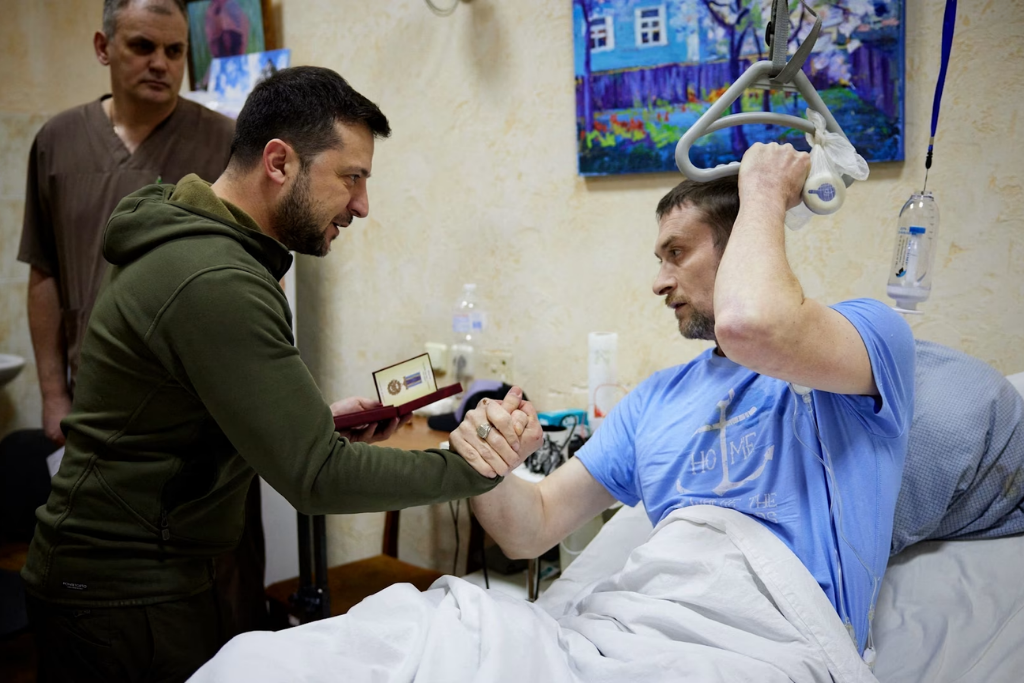
In a energetic and sincerely charged offer conveyed fair days some time recently the dangerous assault on Sumy, Ukrainian President Volodymyr Zelensky freely welcomed U.S. President Donald Trump to visit Ukraine and witness the demolition firsthand. Talking from a war-scarred locale in eastern Ukraine, Zelensky encouraged Trump not to make any political or political bargains with Russia without completely understanding the human taken a toll of the strife. Zelensky emphasized that the war is not a geopolitical chess coordinate but a every day battle for survival, checked by the misfortune of guiltless lives, annihilated homes, and smashed communities. His message was clear: some time recently making choices that might change the course of the war, Trump—and the world—must recognize the enduring persevered by millions of Ukrainians. The welcome underscored Ukraine’s developing dissatisfaction with moving worldwide accounts and served as a update that, at its center, the war is a compassionate emergency requesting compassion, not fair strategy.
Zelensky fortified his welcome to Trump with a effective message: “Come see the individuals, the clinics, the churches, the children annihilated or dead.” His words highlighted the crude human catastrophe that proceeds to unfurl over Ukraine—one that he accepts cannot be completely caught on from a remote place or through political talk. The Ukrainian president’s supplication was not fair coordinated at Trump, but at all worldwide pioneers who may be enticed to see the struggle in terms of bargains, compromises, and key calculations. Firm in his position, Zelensky emphasized that any way to peace must not come at the fetched of Ukraine’s sway or regional keenness. For him and millions of Ukrainians, the war is not fair approximately borders—it’s around the right to exist as a free and autonomous country. He proceeds to advocate for a determination established in equity, responsibility, and long-term security, caution that untimely concessions might encourage future acts of hostility, not fair in Ukraine, but anyplace flexibility is beneath threat.
“Peace cannot be built on the graves of our children.” — Volodymyr Zelensky
Key Points:



International Response and Shifting Diplomacy
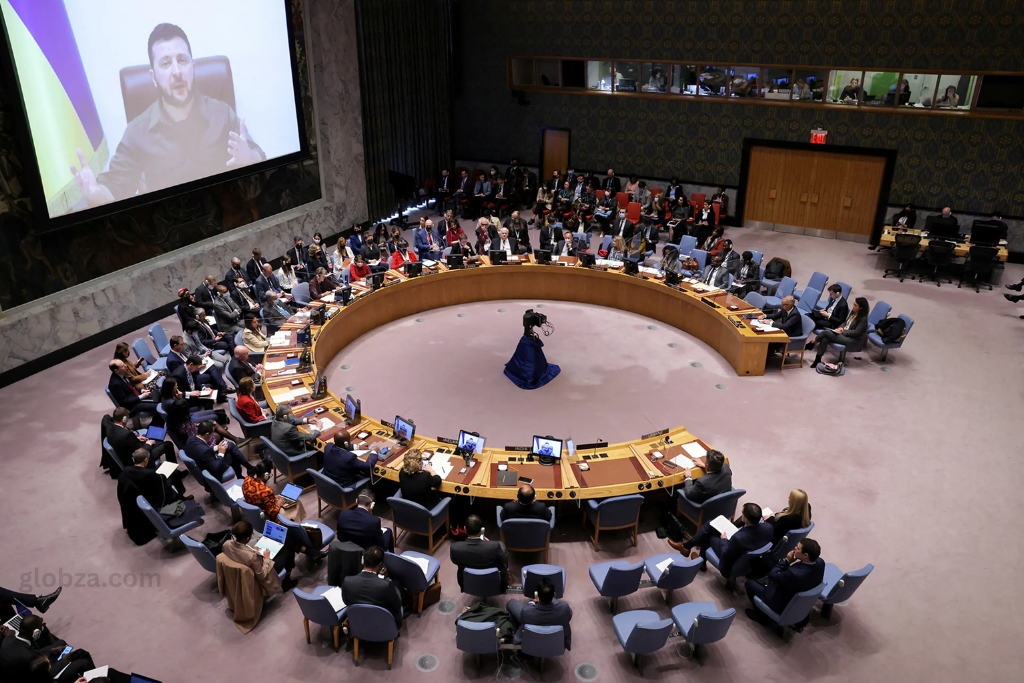
Trump’s recent remarks have sparked widespread confusion and concern among NATO allies and foreign policy experts, many of whom fear that the United States may be signaling a shift in its stance on the Ukraine conflict. The unease has been amplified by the U.S. voting alongside Russia on a controversial procedural motion at the United Nations in February—a move that, while largely symbolic, raised eyebrows among international observers and hinted at a possible recalibration of U.S. foreign policy priorities. Allies worry that such actions, coupled with Trump’s inflammatory rhetoric toward Zelensky, could erode the united front that Western nations have maintained since Russia’s full-scale invasion in 2022. Experts warn that any perceived weakening of U.S. commitment to Ukraine could embolden Russia and destabilize the broader European security order. As the war drags on, the growing disconnect between Washington’s traditional stance and Trump’s recent comments is fueling uncertainty over the future of NATO cohesion and the credibility of U.S. leadership on the global stage.
Meanwhile, Moscow remains firm in its demands, continuing to push for international recognition of the territories it has illegally annexed and a formal end to Ukraine’s ambitions of joining NATO—both of which Kyiv has repeatedly stated are non-negotiable. These conditions are seen by Ukraine and its allies as attempts to legitimize territorial conquest and undermine the country’s sovereignty and future security. Tensions escalated further when reports emerged of a meeting between Trump’s unofficial envoy and Russian President Vladimir Putin. According to sources familiar with the talks, the discussions included the phrase “no NATO, Article 5,” referring to the foundational principle of collective defense among NATO members. This revelation has sent shockwaves through European capitals, where leaders fear that the U.S. may be entertaining a dramatic shift away from NATO commitments. Such a move would not only threaten Ukraine’s future but could destabilize the entire alliance, emboldening authoritarian regimes and weakening the West’s ability to deter future aggression.
“Partnerships create stability.” — Steve Witkoff, U.S. envoy to Russia
Main Reactions:
✅ European leaders remain cautious of U.S.-Russia rapprochement.
✅ Diplomats warn of legitimizing Russian aggression.
✅ Human rights organizations call for continued support to Ukraine.


